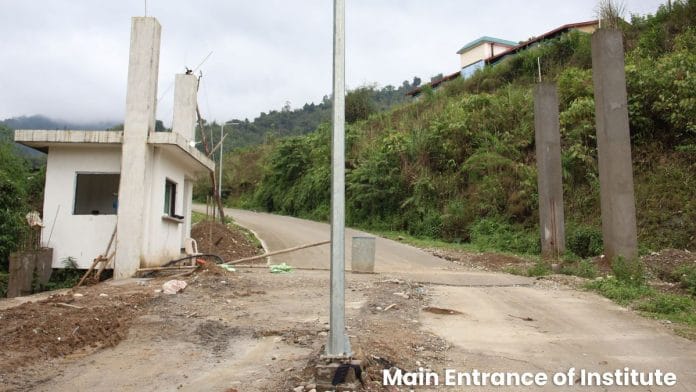New Delhi: The first-ever Film & Television Institute in Arunachal Pradesh began classes in March this year, but it’s still a construction site. Incomplete girls’ hostel, no wifi, students without identity cards, absence of clean drinking water, 24/7 power backup—that is the daily script of those who enrolled here with big-screen dreams. Now, it’s turned into a protest site.
Students have been protesting the lack of basic infrastructure and amenities on campus for over a week. They have boycotted all classes to express their dissatisfaction, not only with the institute’s administration but also with the government.
The demands include the completion of key academic infrastructure such as the Classroom Theatre and Performing Studio, construction of safe access roads and retaining walls, and installation of a boundary wall and main gate to ensure student safety. They also call for reliable 24/7 power backup with proper fuel management and access to clean drinking water.
“We came to this institute to study, but it feels more like a construction site. Not a single building here resembles a proper educational institute with adequate infrastructure for students,” said a 25-year-old student pursuing a PG Diploma in Filmmaking (Screen Acting), speaking on the condition of anonymity.
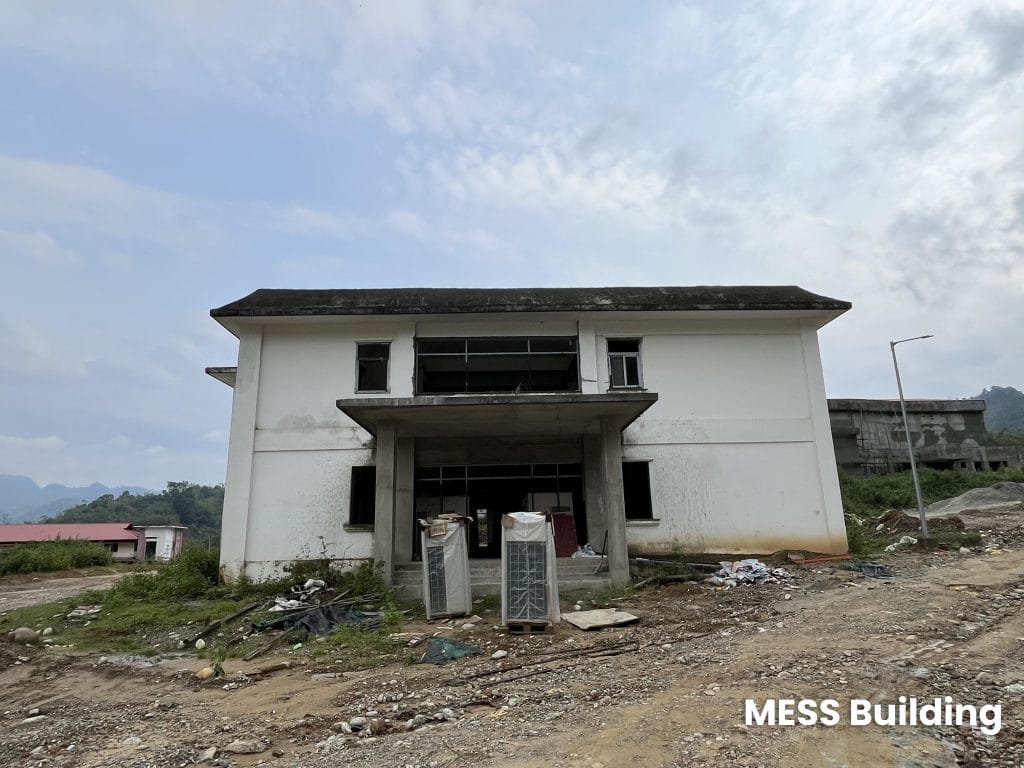
The Film and Television Institute, Arunachal Pradesh, is an academic institution under the Union Ministry of Information and Broadcasting. It is administered by the prestigious Satyajit Ray Film and Television Institute (SRFTI), Kolkata. Prime Minister Narendra Modi had laid the foundation stone for the institute at Jote, Arunachal Pradesh, in 2019.
“The place where girls are staying [staff quarters] doesn’t even have Wi-Fi. We have to go to the boys’ rooms at night just to access the internet,” said a 32-year-old female screenwriting student.
When the first batch of students enrolled in 2024, the institute was being built. And authorities told them construction work would continue alongside academic activities and the campus would be fully ready by December.
But come January, students were asked to start their classes online, but they refused.
“We were told that there was some pending work, but when we arrived on campus in March 2025, even the hostels meant for us weren’t built,” said the student quoted earlier.
The female students were housed in the staff quarters, and the male students in the guest house and transit block. Two months later, they’re still staying in these temporary solutions.
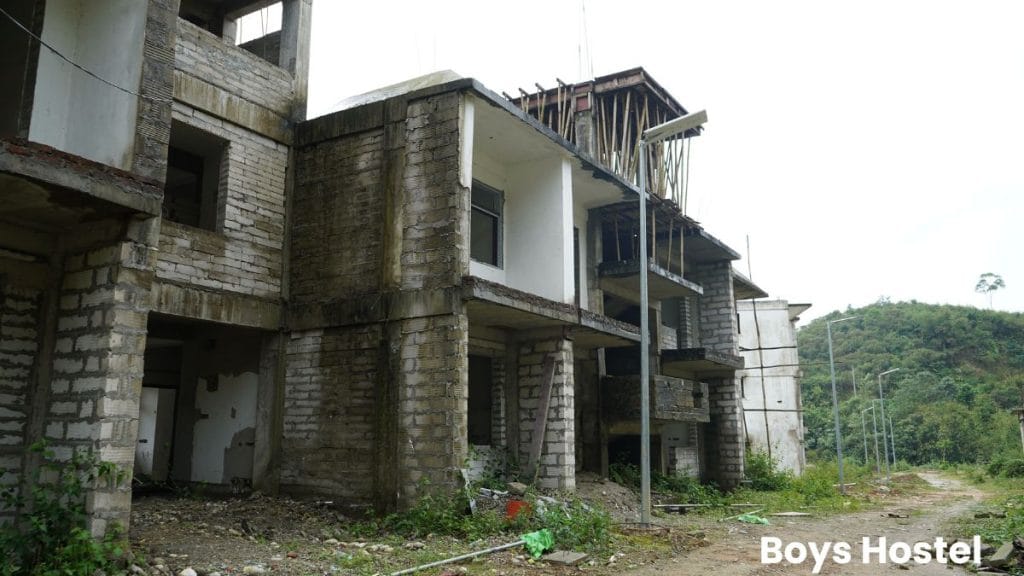
Also read: DU’s Northeast students’ union fought prejudice with politics—now it’s pulling back at a price
Stuck in the blame game
In April 2025, SRFTI, Kolkata, Film and Television Institute of India, Pune and FTI, Arunachal Pradesh, were granted Deemed University status under the University Grants Commission (UGC) Act 1956. This accreditation allows them to offer UGC-recognised degrees, including Master’s programmes, and introduces credit transfer and exchange programmes with national and global universities, enhancing their academic stature.
While FTI Arunachal Pradesh operates independently, it adheres to the academic and operational guidelines established by SRFTI, ensuring a consistent standard of education across both institutions.
However, students told ThePrint that the institute doesn’t have a dean or a proper administrative apparatus.
“The institute is entirely managed by the administration in Kolkata, who are unaware of the ground realities here. All they do is give us new deadlines for the completion of the work,” said another student from the Postgraduate Diploma course in Screen Acting who did not want to be named.
He also expressed frustration over basic administrative failures, saying, “The first thing a student expects is an ID card, and we haven’t even received that since October.”
The construction of the FTI campus is being overseen by the Central Public Works Department (CPWD). The CPWD has extended its originally stipulated deadline and recently disclosed a revised timeline for various building works on the campus.
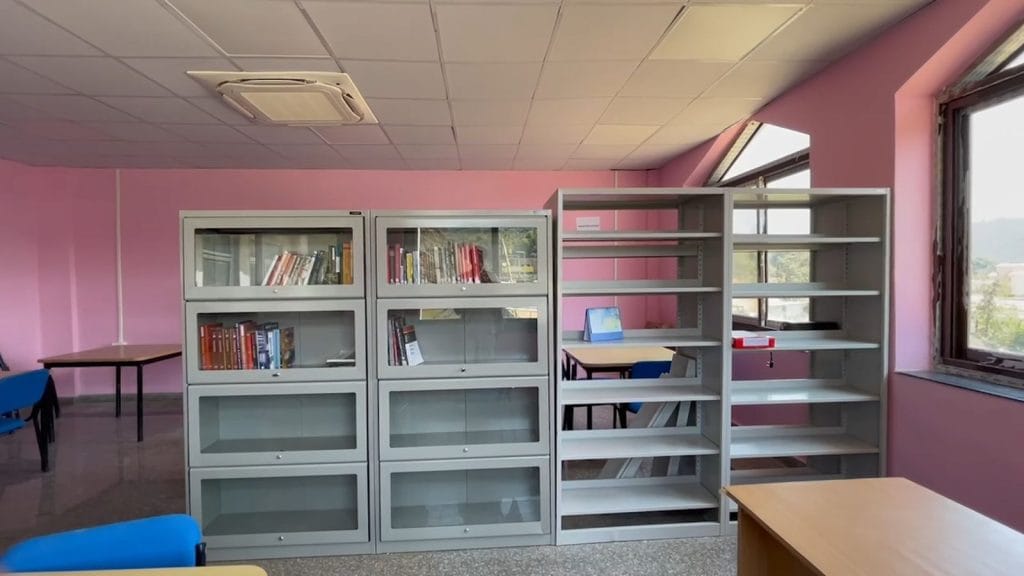
Students also complain that whenever they reach out to the director or administration in Kolkata, they are told the work is under CPWD’s purview. However, when they approach CPWD, they are informed that delays are being caused by local contractors.
“Instead of resolving our problems and at least providing basic infrastructure, there’s just a blame game going on,” said a 25-year-old student.
ThePrint reached out to CPWD Chief Engineer Mukesh Kumar, but he declined to comment.
At least 12 infrastructure projects on the campus are pending completion, including the girls’ hostel, whose deadline has been extended from 15 May 2025 to 31 May 2025.
Speaking to ThePrint, an FTI official said the institute supports the students’ demands regarding complaints of inadequate infrastructure.
“We never expected the construction to take this long, or that the authorities would stretch it out like this,” he said.
He agreed that CPWD had assured the institute that the buildings would be delivered in phases, with the entire campus expected to be completed by December 2025.
“We have been assured that the project will be completed by December 2025. We are only hoping the deadline is not extended further and are trying to persuade the students to return to classes,” he added.
Also read: FIITJEE couldn’t solve the money problem. It tried new business models and still failed
Series of complaints
After a week of ongoing protests, students have received only verbal assurances from the administration. Meanwhile, support continues to pour in on social media and from the film fraternity, as well as students from FTII Pune and SRFTI Kolkata, who have shown consistent solidarity.
Showing solidarity with the protesting students, Indian filmmaker Hansal Mehta posted a story on Instagram with the text: ‘Build institute, make noise, take credit, and then let them rot. That’s the great Indian template for “nation building”.
Filmmakers like Payal Kapadia, Anand Patwardhan, and Vikramaditya Motwane also shared pictures of the protesting students along with photos of the under-construction building on their Instagram stories, calling it disheartening.
“We are not asking for luxuries. We are asking for light, safety, and dignity,” said one of the students.
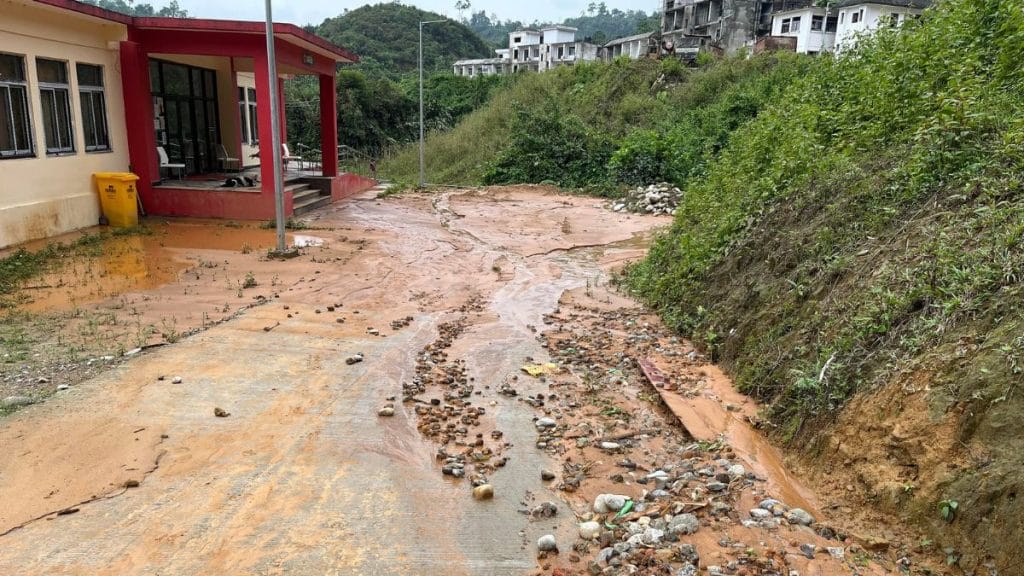
The students’ complaints include the lack of clean drinking water, 24/7 electricity, reliable power backup, campus security, functioning classrooms, and digital access. Key academic infrastructure like the Classroom Theatre (CRT) and post-production blocks remain incomplete. Students continue to fall ill due to unsafe water, suffer frequent internet outages, and are forced to attend classes in unsafe or unfinished spaces.
“The students are raising valid concerns. As teachers, we see firsthand how the lack of infrastructure is affecting their learning experience,” said a faculty member, speaking on the condition of anonymity. “Education should not suffer because of bureaucratic delays. A timely response is the least the system can offer.”
Students are compiling their complaints into detailed PDF documents and remain firm in their decision not to return to classes until their demands are fully met. They want a written timeline from the authorities regarding the completion of work.
“Our demands are not extravagant—they are fundamental requirements expected from a national film institute for which we have paid to gain admission,” said a 25-year-old student, whose two-year PG Diploma in Filmmaking (Screen Acting) costs around Rs 3 lakh.
One of the most important demands of the students is formal recognition of the institute, an official website, and student credentials, along with a permanent on-campus director and trained administrative staff.
“We feel like fools here. It is not only affecting our studies and careers, but also our health,” said the student.
(Edited by Theres Sudeep)



